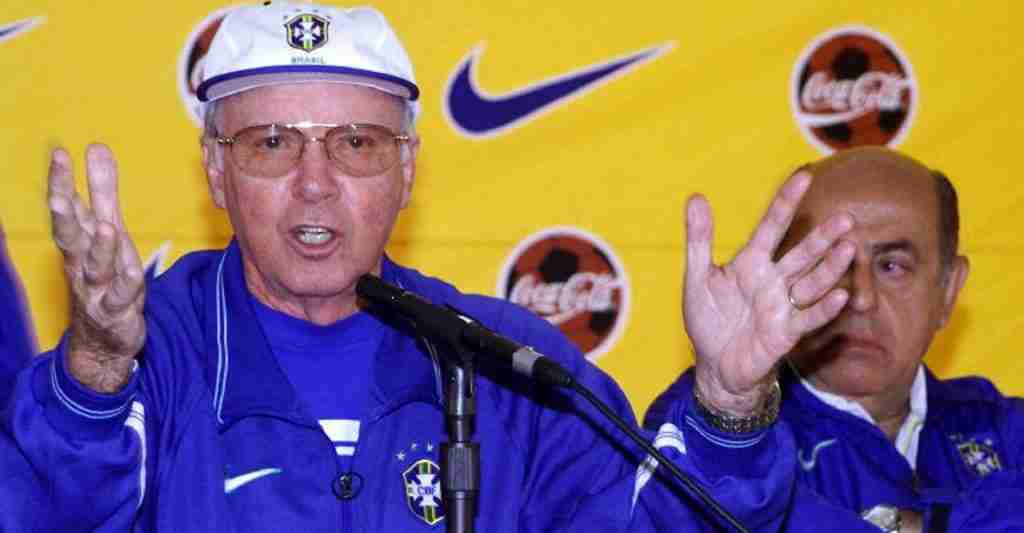Rio de Janeiro: Mario Zagallo, who won four FIFA World Cups for Brazil as a player or coach, whose 1970 team considered by many to be the best ever, has died, according to a message published on Saturday on his official Instagram account. He was 92 years old.
A tough and talented left winger, Zagallo played on the team that won Brazil’s first World Cup in 1958 and retained his place on the team that retained the title four years later.
In 1970, he coached a Brazilian team featuring all-time greats like Pelé, Jairzinho, Rivellino and Tostao – a team many consider to be the greatest national team to ever play the sport. They won Brazil’s third World Cup in Mexico.
This made Zagallo the first person in the sport to win a World Cup as a player and coach.
He later served as assistant coach to Carlos Alberto Parreira when Brazil won its fourth title in 1994 in the United States.
His Brazilian fans loved him for his idiosyncratic personality and unapologetic nationalism. He liked to say he was born with victory on his side and never hesitated to challenge those who said his teams were too defensive.
One of his most famous outbursts came after Brazil won the Copa America in Bolivia in 1997. His team was disliked, but at the final whistle, an emotional Zagallo, his face red from the thin air of La Paz, shouted in front of the television cameras. : “You’re going to have to put up with me!”
This phrase is still frequently repeated by Brazilians of all backgrounds celebrating vindication.
Zagallo was also known to be very superstitious and believed that the number 13 brought him luck. He liked to make up sentences containing 13 letters, he got married on the 13th of the month and even once joked that he would retire from the game at 1:00 p.m. on July 13, 2013.
Nicknamed the Old Wolf, Mario Jorge Lobo Zagallo was born on August 9, 1931 in Maceio, on the northeast coast of Brazil. His family moved to Rio de Janeiro before his first birthday and it was there that he fell in love with soccer.
His first dream was to become an airline pilot, but he was forced to give that up because of poor eyesight. Instead, he studied accounting and played soccer in his spare time with the local American team, then one of the biggest clubs in the city.
“My father didn’t want me to become a footballer, he wouldn’t let me,” Zagallo said in an interview published by the Brazilian Football Confederation (CBF). “At the time, it wasn’t a respected profession, society didn’t look at it favorably… That’s why I say football came into my life by chance.”
Zagallo started as a left midfielder, wearing the number 10 jersey which, at the time, before Pelé, had not yet taken on the importance it has today. But his intuition told him he was in the wrong place, at the wrong time.
“I understood that it would be difficult to get into the Brazilian team wearing the No. 10 jersey, because there were a lot of great players in that position,” he said. “So I moved from left midfielder to left wing.”
He also left America for Flamengo, where he won three medals at the Carioca State Championships. The second half of his career was spent at cross-town rival Botafogo, where he won two more state titles.
His first World Cup came in Sweden in 1958, where he started all six matches and played alongside Garrincha and Pelé, then just 17 years old.
“I was 27 and Pelé was 17,” he said. “That’s why I say I never played with him, but he played with me.”
Four years later, in Chile, he became champion again, but he only guaranteed his place after some tactical modifications. Zagallo would stay back to help mark the rival full-back and when his team won the ball he would roar down the wing. It was unusual for the forwards to help out in defense and he is credited with changing the way the wingers played the game.
As a coach, Zagallo managed a series of Brazilian clubs, but he made his mark when he was recruited to replace the controversial Joao Saldanha as Brazil coach just months before the 1970 World Cup in Mexico.
Brazil’s form had been inconsistent and they were not fancied, but Zagallo assembled the star-studded team, capping a terrific display with a memorable 4-1 victory over Italy in the final.
Zagallo stayed until 1974, taking Brazil to fourth place in West Germany, but it was a disappointing performance which was followed by periods of managing clubs at home and national teams in the Middle East.
He was Parreira’s assistant in 1994, when Brazil won its fourth title, and in 2006, when they were eliminated in the quarter-finals. And he was in charge in 1998 when Brazil lost 3-0 to hosts France in the final after star striker Ronaldo suffered seizures just hours before the match.
The outcome of 2006 was difficult for Zagallo, who had been ill before the tournament. He clearly found management difficult and withdrew from the game.
Still bubbling and still popular, he has not disappeared from public view and has often appeared on television, at awards galas and lent a hand to the CBF.
He married Alcina de Castro in 1955 and remained with her until her death in 2012. The couple had four children.
